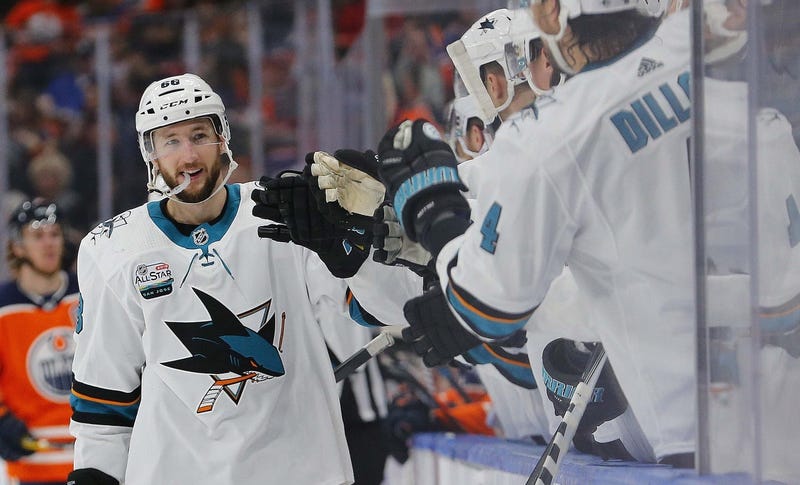
Coaches in the modern NHL have trended away from “numbering” their lines, owing to an obvious ordinal connotation that ranks higher numbers above lower ones.
Evidently it’s better for morale to just know that certain players see a great deal more of ice time than others without having the stigma of clear and useful labels attached to that type of system. The fourth line is now often referred to as the “checking line,” which is good for the implication that the particular trio in question only knows how to hit people.
All of this is a way of saying that no matter what term you use to refer the group to which Melker Karlsson belongs, he’s an invaluable stalwart for the Sharks, the type of cog typically said to bring “grit” or “hustle” to a squad without any further examination of what those words might mean.
One of the fun things about San Jose’s checking line is that it’s served as a microcosm for the way that the league’s corresponding lines have evolved, and demonstrates the type of players likely to agglutinate near the bottom of rotations.
And then there’s Melker Karlsson, a jack-of-some-trades who manages to put in dependable, valuable shift after dependable, valuable shift. He doesn’t get in fights; he doesn’t pot a hatty every now and again and suddenly find himself skating next to Tomas Hertl; he glides on that frozen water for about twelve minutes a game and does absolutely everything you could want a fourth-line forward to do, and the Sharks are markedly better for his presence.
